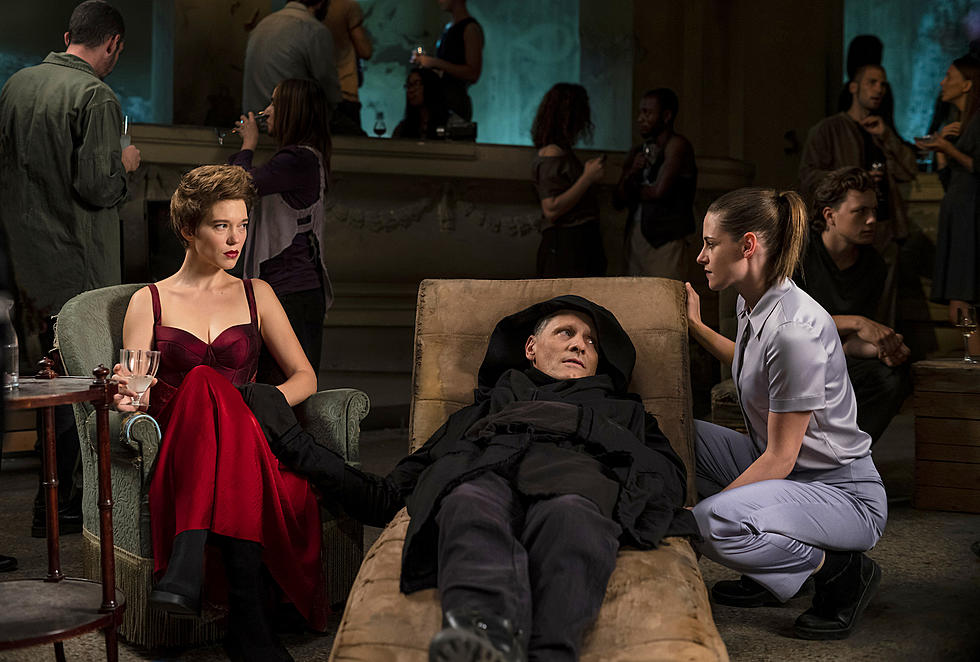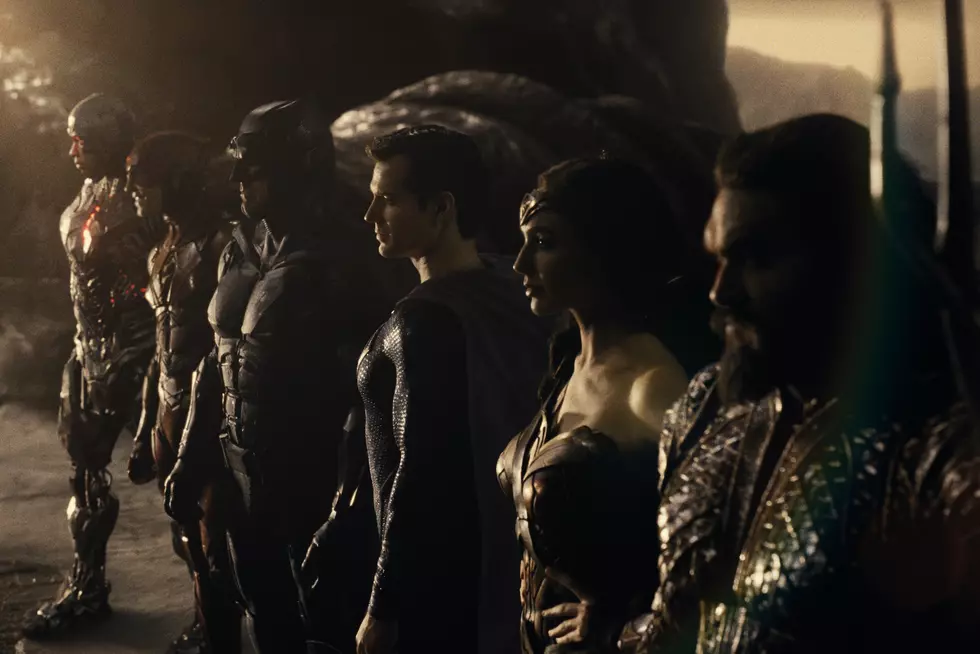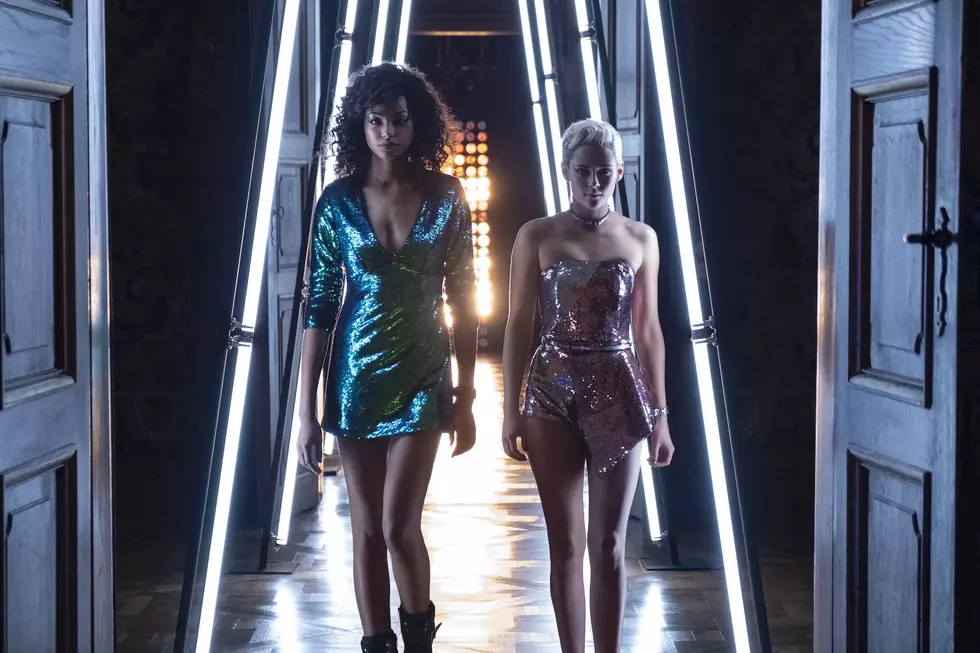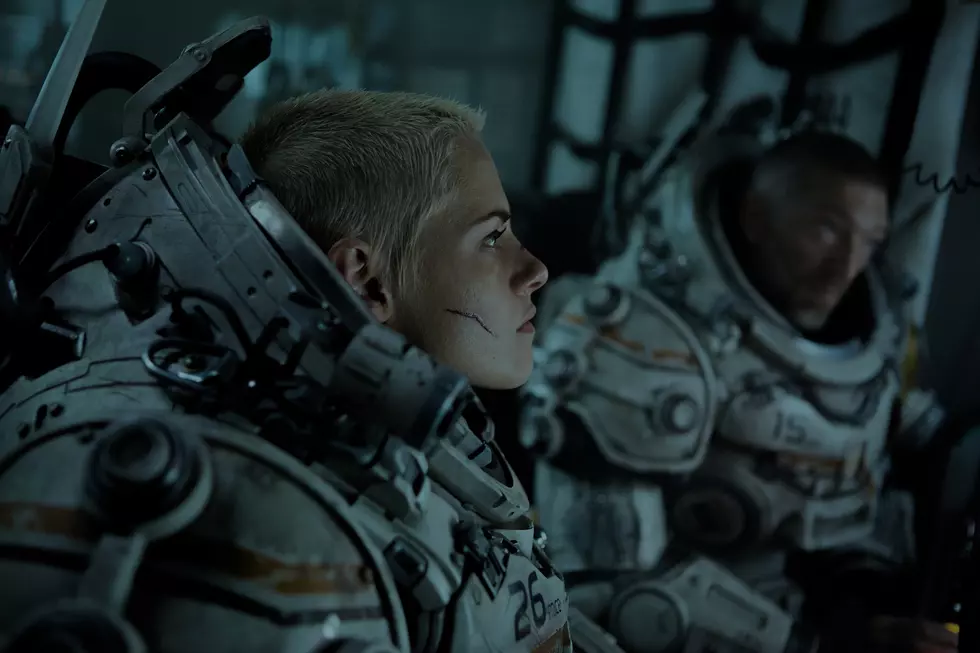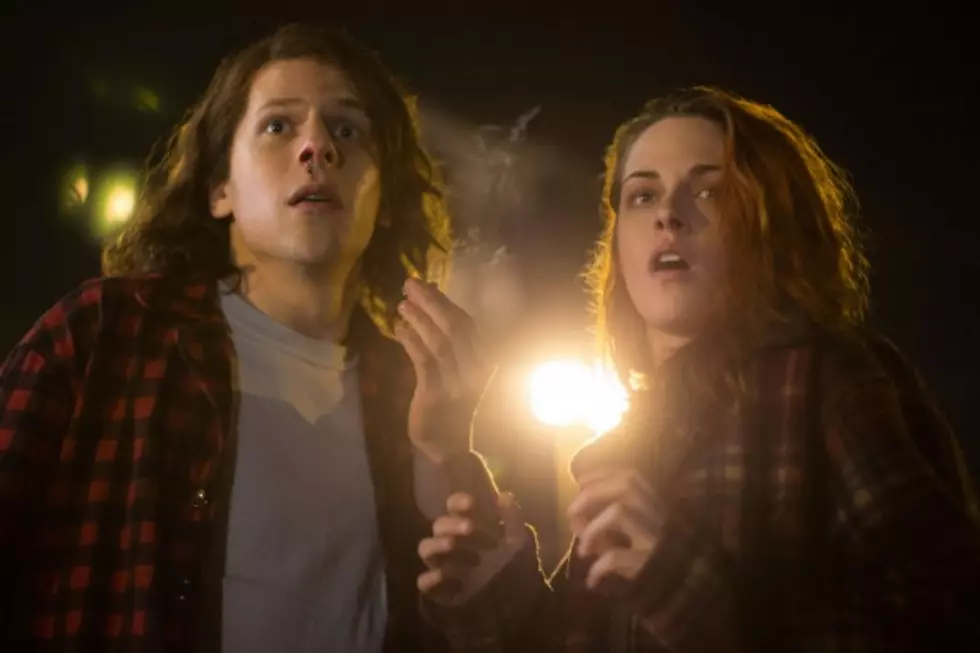
‘American Ultra’ Review: A Stoned Cold Spy Comedy/Romance/Thriller
A late August release date typically means one of two things: A movie is terrible or a movie is weird — and therefore difficult to market. American Ultra is a classic example of the latter. The trailers and posters mostly sell it as a wacky stoner action comedy, but drug humor actually plays a fairly small part in the film, which cycles through scenes of bloody horror, government conspiracy, and sincere relationship melodrama. Audiences might go into American Ultra expecting The Bourne Identity meets Half Baked. They’re going to find something much stranger and more interesting (with a bunch of First Blood, a dash of The Cabin in the Woods, and even a smidge of rom-com tossed in the mix).
Things begin simply enough, in the sleepy town of Liman, West Virginia (a nod, perhaps, to Doug Liman, director of The Bourne Identity). That’s where potheaded convenience store clerk Mike Howell (Jesse Eisenberg) smokes away his days and nights with his girlfriend Phoebe (Kristen Stewart). Mike loves Phoebe, but keeps freezing when it comes time to pop the question. His plan to propose on a Hawaiian vacation goes awry in several ways. He gets a crippling panic attack at the airport and the couple miss their flight. More significantly, his attempt to leave town raises a red flag at the CIA, where a power-hungry bureacrat named Yates (Topher Grace) sends a group of assassins to eliminate Mike.
Before he was an anxiety-ridden cashier, you see, Mike was the world’s greatest assassin. When he says in voiceover that he can’t remember his life before Phoebe, that’s not a romantic platitude; he genuinely doesn’t recall anything about his past, because his mind was manipulated and erased by the CIA as part of a program that turned him from a drug-loving teen into a programmable killer. A sympathetic former handler reactivates Mike just as Yates’ goons descend on Liman, leading to face-off between the soft-spoken but super-deadly stoner and the forces of evil.
While Mike and Phoebe struggle to survive in a gritty and sometimes shockingly violent thriller, Yates squabbles with his co-workers in a mordant workplace comedy set in the windowless halls of the CIA. Connie Britton plays his rival; Tony Hale is the low-level manager caught between the two. These scenes, along with those of the CIA’s egregious abuses of power in Liman, flow nicely out of the early-wake-and-bake stuff featuring Mike and Phoebe, as if the movie’s mellow high curdles into feverish paranoia — each new sinister twist sounds like the ravings of a pothead on a particularly bad trip. (“Nah, man! The government creates assassins! And then they, like, deploy them on U.S. soil and blame the carnage on super typhoid!”)
Working from a clever screenplay by Max Landis, director Nima Nourizadeh keeps things moving briskly. Though he indulges in the occasional nerd power fantasy (Mike manages to kill one dude by bouncing a bullet off a frying pan he tosses into the air), he also doesn’t shy away from the gruesome fallout of Mike’s incredible powers and the CIA’s rampage (the guy Mike kills actually isn’t all that bad, and his death is mourned by another likable character). True to its Bourne-y inspiration (and Landis’ script for Chronicle), American Ultra’s super-powers are as much curse as gift. Coolness, in this film, comes at an incredibly high price.
The CIA villains eventually become so cartoonish that they stop seeming scary, but the tender performances by Eisenberg and Stewart keep American Ultra grounded. The pair worked together before, on Greg Mottola’s underrated Adventureland, and they have a convincing, easy chemistry (not to mention sharp comedic timing). Eisenberg makes for an unlikely action hero — which is a big part of the joke — but he works his physicality, all spindly arms and legs, until Mike feels like a genuine threat. And Stewart, who got an unfair reputation in the wake of the Twilight franchise, steals scene after scene, and delivers one of the funniest lines of the summer after Mike inadvertently kills two men at work.
The film’s only serious misstep is its ending, particularly an epilogue (and cartoonish closing credits) that fly directly in the face of American Ultra’s message about freedom. It’s either a complete betrayal of the characters or a deconstruction of a clichéd Hollywood ending played so straight that the subversive joke got lost. The decision to close the film out that way feels like a concession to test audiences who weren’t prepared for this surreal late-summer surprise.
More From ScreenCrush

